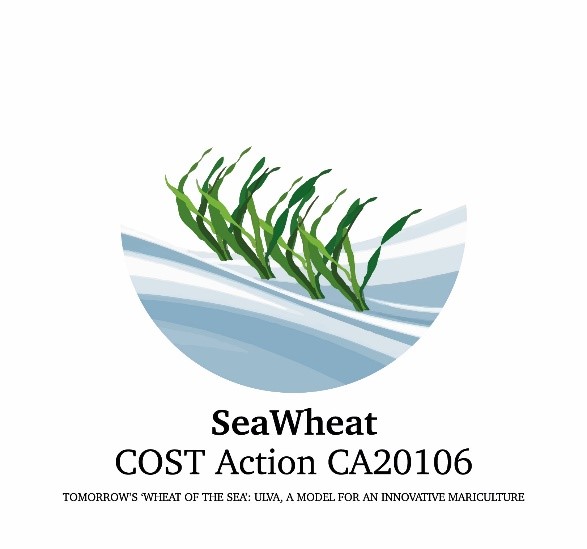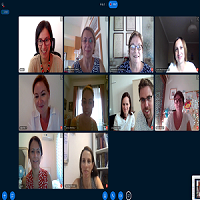Over the past decade, we have witnessed a growing interest in developing marine coastal areas as a source of alternative, sustainable food production and other valuable products. We, a group of experts (105 specialists from 28 countries) pursuing these scientific and commercial interests in Europe, Asia, the Americas and beyond, propose to modernise and make more sustainable and healthier our traditional aquatic diet from our coastal seas through the EU-COST program.
The European Cooperation in Science and Technology (COST) Association supports an EU-funded program that enables researchers and innovators to set up a collaborative research network across a wide range of scientific disciplines. The COST funding organization supports Actions that provide networking opportunities to their participants, allowing them to jointly address scientific, technological and societal challenges through innovative ideas and initiatives. Our network aims to exploit the potential of marine seaweeds in Europe.
Building on the successes of previous EU and pan-European projects on seaweeds, and due to the unique characteristics of the green seaweed Ulva (commonly known as ‘sea lettuce’), we have identified these algae as the most suitable candidates and model organisms for a novel kind of European mariculture.
Species of Ulva have been extensively analysed for their value as food, feed, food ingredients (e.g., protein, carbohydrates, pigments, antioxidants), chemical constituents and medicinal properties. In mariculture, Ulva can be cultured in either land- or sea-based facilities. Ulva can produce more biomass per square meter than land plants (25-40 tonnes dry weight per hectare per year, compared to 2.1, 4.1 and 5.1 tonnes for soybean, wheat and maize, respectively). In addition, Ulva provides a fundamental ecosystem service as an ecological biofilter, supporting the sustainability of the ever-growing land- and sea-based fish farming industry, improving water quality by extracting harmful nutrients and preventing eutrophication in coastal waters.
The SeaWheat COST Action (CA 20106 - Tomorrow’s ‘Wheat Of The Sea’: Ulva, A Model For An Innovative Mariculture’ (https://www.cost.eu/actions/CA20106/) combines interdisciplinary approaches to the sustainable use of marine resources, encompassing all facets of Ulva biology, ecology, aquaculture, engineering, as well as economic and social sciences. This Action will lead to advanced science and technology development, create business and employment opportunities in maritime and coastal economies, and significantly impact societal welfare.
This COST Action fulfils the current ‘Societal Challenges Priorities’ of the European Horizon 2020 strategy for food security, and its implementation will contribute to the UN Sustainable Development Goals 14 (UNSDG) for the conservation and sustainable exploitation of natural resources.
‘’Seaweed aquaculture, the fastest-growing component of global food production, offers a slate of opportunities to mitigate and adapt to climate change. Seaweeds can play a huge role in fighting climate change by absorbing and locking away vast quantities of CO2. They can contribute to climate change adaptation, reducing the effects of ocean acidification acting as a CO2 sink.
Our ultimate goal is the development of Ulva-based blue-biotech industries and promotes seaweeds and Ulva as a model organism in European algaculture! Our main challenge is to make a step-change towards a green economy based on algal organisms and utilisation within the European community and beyond’’ mentioned Dr Olympia Nisiforou, MC member of COST Action (CA 20106).
For more information on the COST Action program (CA 20106), please contact the Management Committee Members, Dr Olympia Nisiforou(olympia.nisiforou@cut.ac.cy) or Associate Professor Alexandros Charalambides (a.charalambides@cut.ac.cy).
Το Τμήμα Καλών Τεχνών διοργανώνει εκδήλωση για τη λογοκρισία στην τέχνη και στον δημόσιο λόγο
Over the past decade, we have witnessed a growing interest in developing marine coastal areas as a source of alternative, sustainable food production and other valuable products. We, a group of experts (105 specialists from 28 countries) pursuing these scientific and commercial interests in Europe, Asia, the Americas and beyond, propose to modernise and make more sustainable and healthier our traditional aquatic diet from our coastal seas through the EU-COST program.
The European Cooperation in Science and Technology (COST) Association supports an EU-funded program that enables researchers and innovators to set up a collaborative research network across a wide range of scientific disciplines. The COST funding organization supports Actions that provide networking opportunities to their participants, allowing them to jointly address scientific, technological and societal challenges through innovative ideas and initiatives. Our network aims to exploit the potential of marine seaweeds in Europe.
Building on the successes of previous EU and pan-European projects on seaweeds, and due to the unique characteristics of the green seaweed Ulva (commonly known as ‘sea lettuce’), we have identified these algae as the most suitable candidates and model organisms for a novel kind of European mariculture.
Species of Ulva have been extensively analysed for their value as food, feed, food ingredients (e.g., protein, carbohydrates, pigments, antioxidants), chemical constituents and medicinal properties. In mariculture, Ulva can be cultured in either land- or sea-based facilities. Ulva can produce more biomass per square meter than land plants (25-40 tonnes dry weight per hectare per year, compared to 2.1, 4.1 and 5.1 tonnes for soybean, wheat and maize, respectively). In addition, Ulva provides a fundamental ecosystem service as an ecological biofilter, supporting the sustainability of the ever-growing land- and sea-based fish farming industry, improving water quality by extracting harmful nutrients and preventing eutrophication in coastal waters.
The SeaWheat COST Action (CA 20106 - Tomorrow’s ‘Wheat Of The Sea’: Ulva, A Model For An Innovative Mariculture’ (https://www.cost.eu/actions/CA20106/) combines interdisciplinary approaches to the sustainable use of marine resources, encompassing all facets of Ulva biology, ecology, aquaculture, engineering, as well as economic and social sciences. This Action will lead to advanced science and technology development, create business and employment opportunities in maritime and coastal economies, and significantly impact societal welfare.
This COST Action fulfils the current ‘Societal Challenges Priorities’ of the European Horizon 2020 strategy for food security, and its implementation will contribute to the UN Sustainable Development Goals 14 (UNSDG) for the conservation and sustainable exploitation of natural resources.
‘’Seaweed aquaculture, the fastest-growing component of global food production, offers a slate of opportunities to mitigate and adapt to climate change. Seaweeds can play a huge role in fighting climate change by absorbing and locking away vast quantities of CO2. They can contribute to climate change adaptation, reducing the effects of ocean acidification acting as a CO2 sink.
Our ultimate goal is the development of Ulva-based blue-biotech industries and promotes seaweeds and Ulva as a model organism in European algaculture! Our main challenge is to make a step-change towards a green economy based on algal organisms and utilisation within the European community and beyond’’ mentioned Dr Olympia Nisiforou, MC member of COST Action (CA 20106).
For more information on the COST Action program (CA 20106), please contact the Management Committee Members, Dr Olympia Nisiforou(olympia.nisiforou@cut.ac.cy) or Associate Professor Alexandros Charalambides (a.charalambides@cut.ac.cy).



